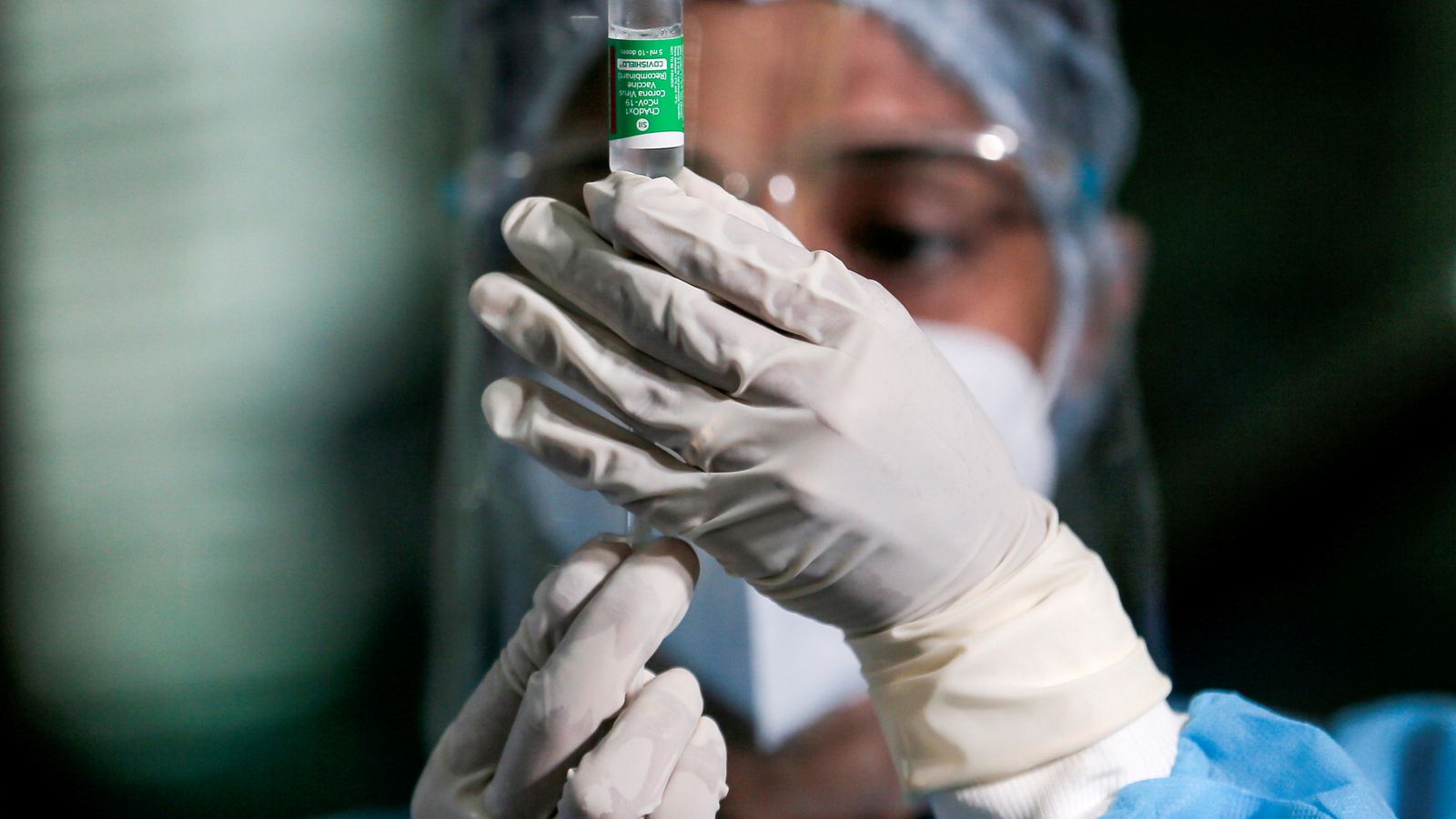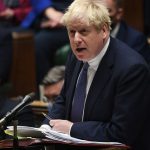The UK government has begun negotiations with AstraZeneca to secure a “variant vaccine” that can tackle the South African variant, Health Secretary Matt Hancock has said.
Also known as the Beta variant and the B.1.351 variant, a study published in March found two doses of the current AstraZeneca COVID-19 vaccine only had a 10.4% efficacy against mild to moderate infections caused by the variant.
The strain shares similar mutations to other variants, which has caused concern that those inoculated with the AstraZeneca vaccine could be exposed to multiple variants.
Please use Chrome browser for a more accessible video player
In a speech delivered at the University of Oxford, where the vaccine was developed, Mr Hancock said: “There is yet more to do, the work isn’t over yet – we’re still procuring all the time, and planning what we need to keep this country safe, including new vaccines specifically targeted at variants of concern.
“I can tell you today that we’ve started commercial negotiations with AstraZeneca to secure a variant vaccine – future supplies of the Oxford/AstraZeneca vaccine that have been adapted to tackle the B.1.351 variant first identified in South Africa.
“Once again, we’re leading the way and backing projects with potential, so we can keep our vaccination programme one step ahead of the virus and protect the progress that we’ve all made.”
AstraZeneca said any future version of its vaccine would need to be approved for use by medicines regulators.
The company said: “AstraZeneca is in discussions with the UK government regarding future versions of our COVID-19 vaccine to specifically address variants.
“We will share more details in due course.
“Any future version of the vaccine would need to be approved for use by the medicines regulator.”
The South Africa variant prompted surge testing and enhanced contact tracing across the UK after clusters not linked to travel were first detected in Britain in January.
Up to 19 May, 904 cases of the variant have been identified in the UK – a rise of 41 from the previous week, latest Public Health England data shows.
Pfizer, one of the other vaccines available in the UK, previously said there is no evidence its jab needs updating against current known variants.
Two doses of the AstraZeneca vaccine were found to be 60% effective against the Indian variant, also called the Delta variant.
The company has not confirmed if it is working on tweaking its vaccine for that variant.
Analysis: The variant vaccine will be welcome – but is just catching up with the virus
By Thomas Moore, science correspondent
The mutating COVID virus has forced vaccine makers back to the lab bench – and governments to consider a tweaked booster to keep up protection.
Moderna is already testing a reformulated vaccine against the concerning variant first identified in South Africa.
Pfizer and AstraZeneca are also updating their shots – and now the health secretary has revealed the UK government is negotiating with the latter for doses.
So far, a little under 1,000 cases of the South African variant have been confirmed in the UK and it continues to spread slowly despite surge testing.
Like the variant originally detected in Manaus, Brazil – or Gamma, as it is now known – it has a mutation called E484K that helps it to evade the immune system.
While scientists believe existing vaccines would still prevent most serious infections and deaths, any drop in protection would be a step backwards in our hard-won exit from the pandemic.
But while a reformulated jab gives some security, it is just catching up with the virus.
Some scientists argue that it is better to mix together genetic material from lots of variants, or even to predict where evolution might take the virus and design a vaccine against such a super-strain.
The pharma companies are going to have to be smart to outwit the shape-shifting COVID virus.






















